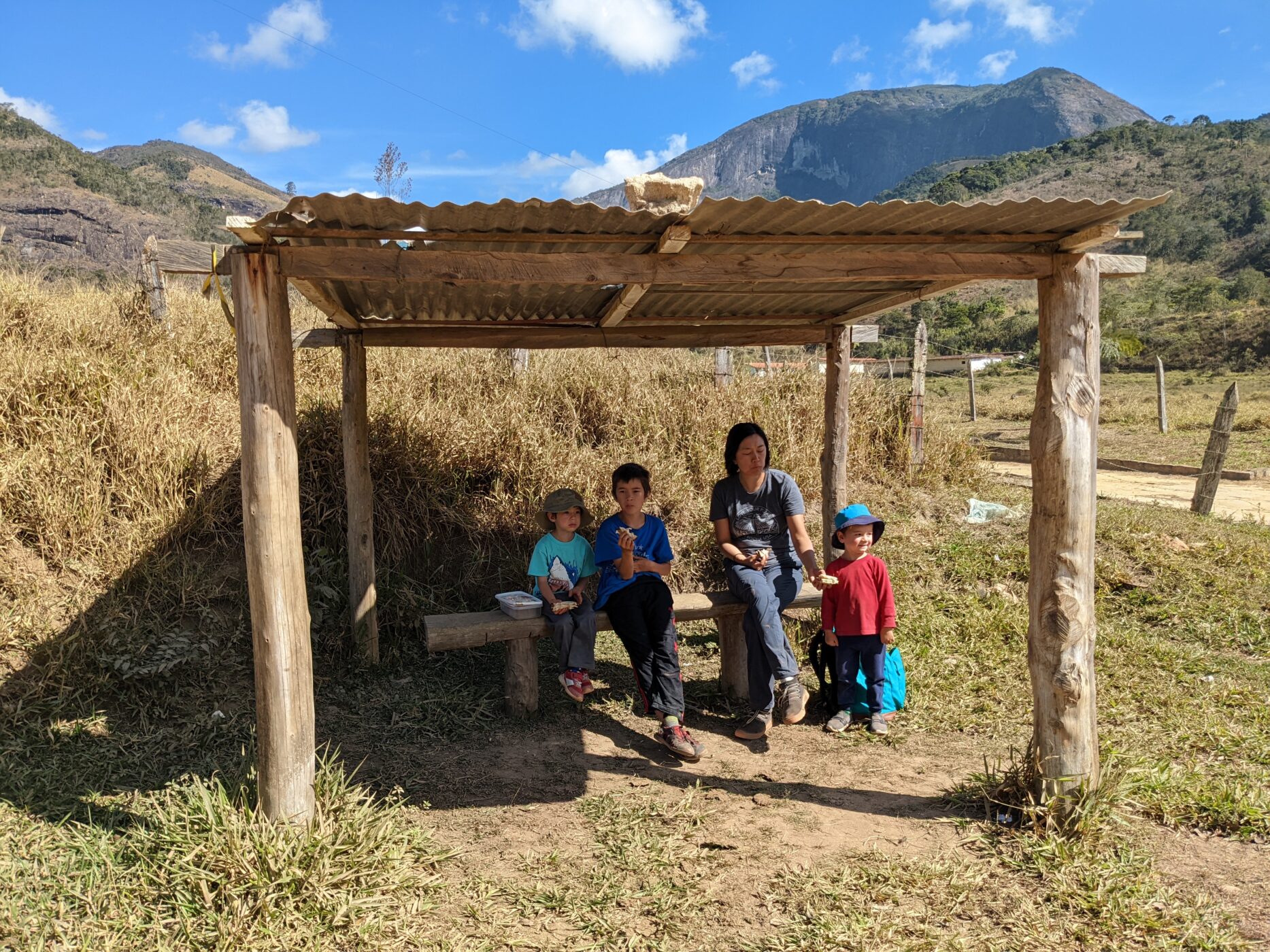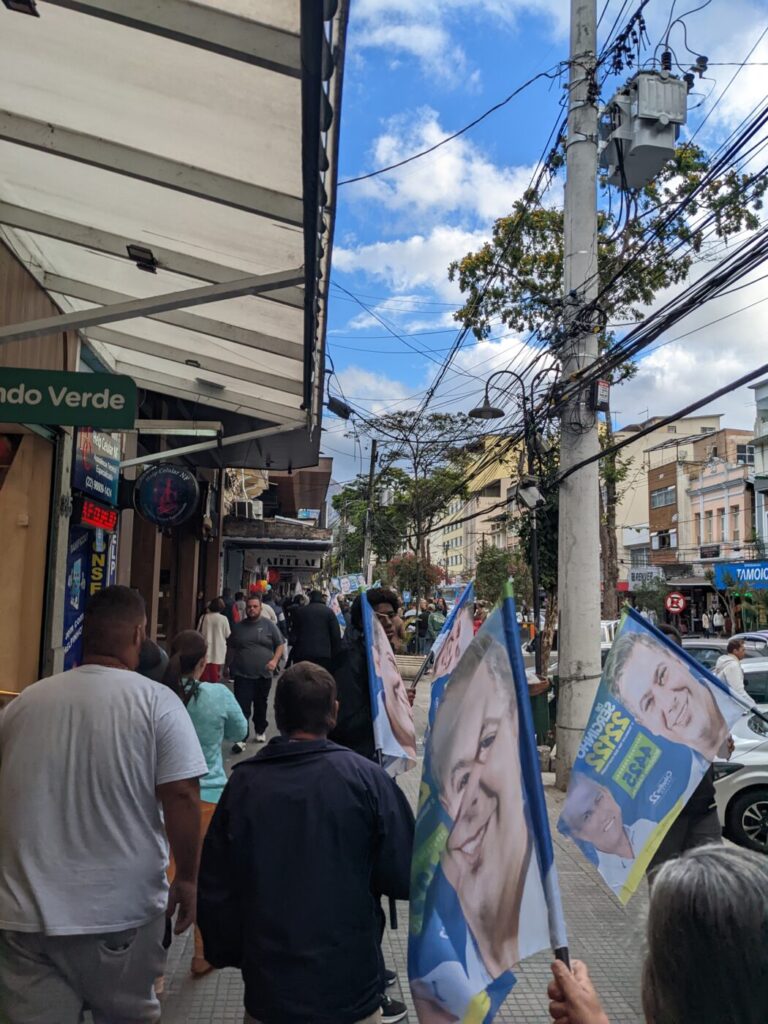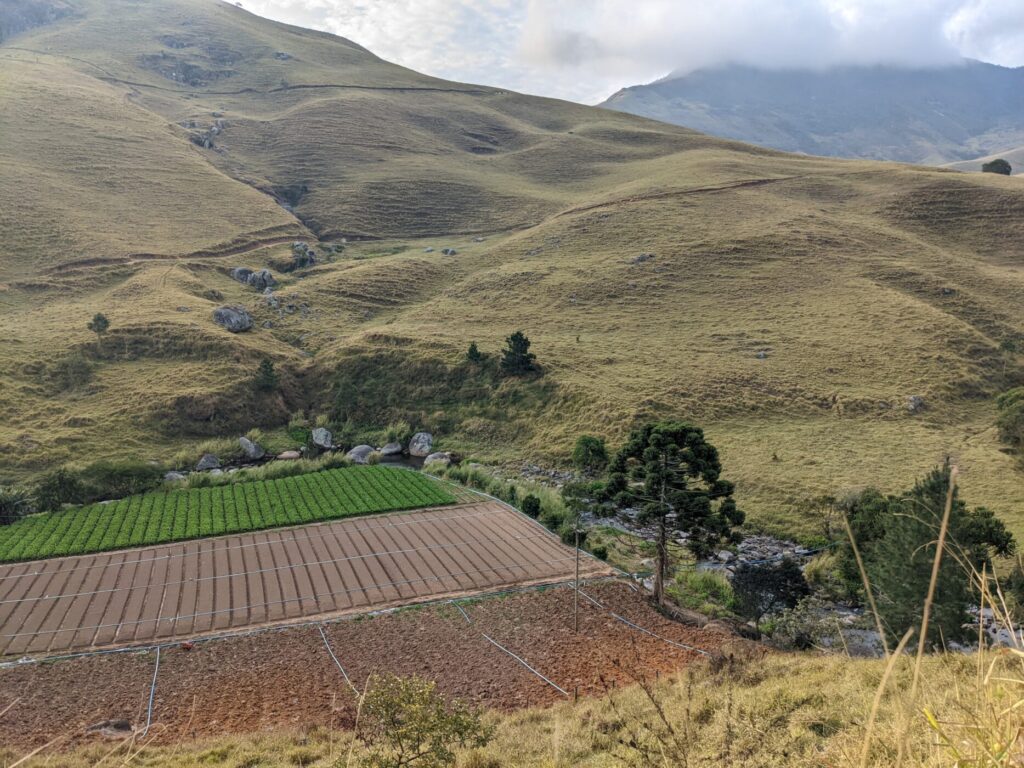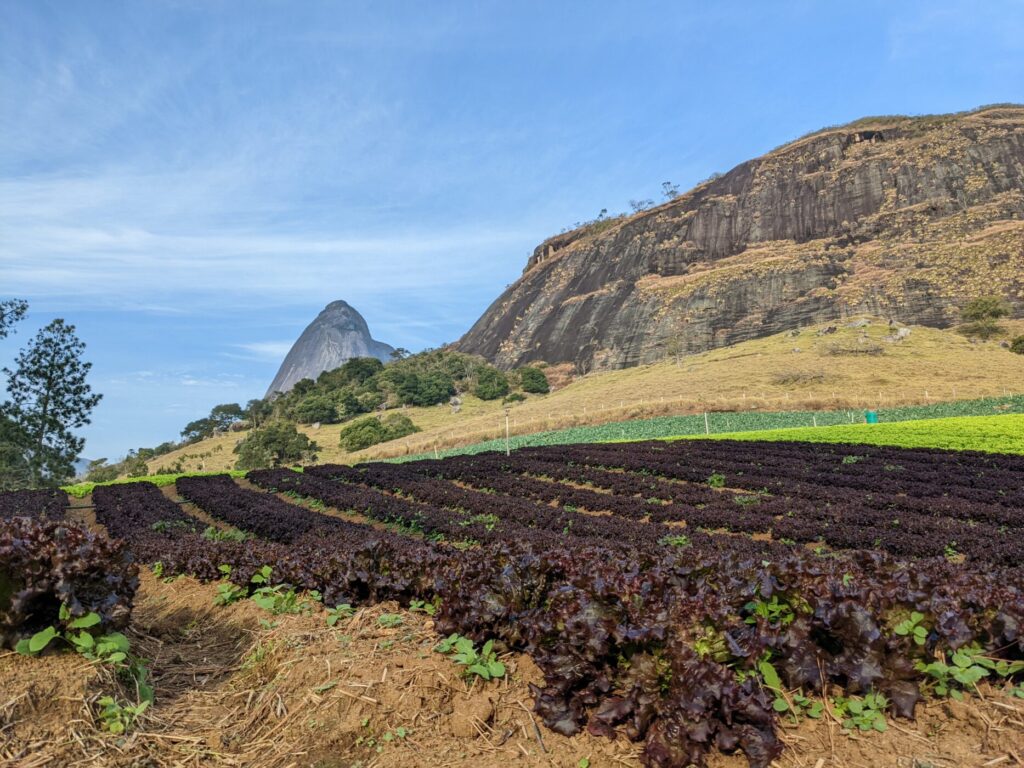In the Heart of Farming Country During Brazil’s Presidential Elections

Snapshots from our time on the ground observing the Bolsonaro-Lula faceoff.
Brazil, in many ways, is a mirror of the United States. Enormous land mass, history of slavery and colonialism, rich natural resources, and incredibly polarized political landscape. The election of Jair Bolsonaro, a right-wing populist, to the presidency in October 2018 was like a replay of the 2016 US elections. Here, again, a candidate appealed to the people’s desire for security, order, and economic growth while neglecting other critical factors to the well-being of the whole, like environmental protections and listening to racial minorities and indigenous peoples.
On October 30, 2022, Bolsonaro was ousted from the presidency by Luiz Inácio Lula da Silva in a tense runoff election that turned on a sliver of votes: 50.9% for Lula versus 49.1% for Bolsonaro. Our family has been in the country since July. We’ve been expectant and nervous, like many onlookers, about this election. Here are some snapshots from our time on the ground.
“Don’t Come Here”
Our tickets to Rio de Janeiro were purchased, and we had begun reaching out to friends of friends in the country. One man, Claudio, got back to us with this foreboding message: “Coming to Brazil from now to next January can be considered one of the worse ideas. The political turmoil, the dystopic government, the violence, and the insecurity couldn’t be worse. It is not only dangerous but also risky in terms of personal safety.”
Okay, then. We tried to put Claudio’s message in context. He was coming out of a rough period personally and living in an urban area where violent crimes tend to be higher than in rural areas. There were indeed worrisome stories coming out of the country, like the shootout in a favela in Rio and the murder of a British journalist and environmental activist in the Amazon, both happening weeks before our arrival.
But Brazil is massive. One might say the exact same thing to visitors in the United States, given the regularly occurring mass shootings and other scary headlines. We had armed and angry mobs trying to take over the country’s capitol right after our last presidential elections. But everyday life continued in our little pocket of suburban Chicago. We checked with Bart, the owner of the farm north of Rio where we are currently staying. “I wouldn’t invite people here if I thought it was dangerous,” he said. So, with a grain of salt, we acknowledged Claudio’s advice and moved forward.
We planned to spend minimal time in the cities, where most of the rallies and protests and potential for violence tend to occur, and stick to the countryside. So far, we’ve been fine. There is still a chance of getting caught up in a sticky situation while on the road, but it can’t be worse than what we experience regularly in the States.
Electioneering
A couple weeks before the firsts round of elections on October 2, we drove through Nova Friburgo, a small city in the mountains north of Rio de Janeiro, on our way to Eco Caminhos, a permaculture farm where we’ve been volunteering for the past two months. Besides noticing that the city is filled with lingerie shops—it is apparently the lingerie capitol of the world—I also noticed folks lining the streets waving flags with men’s faces and sequences of large-print numbers. I thought, at first, they were cheering for a bike race. But our driver later confirmed Matt’s guess—they were rallying for various candidates in the upcoming elections.

This was Brazil’s version of the outrageous number of yard signs that fill the lawns of houses and in front of voting centers in the U.S. during election season. Instead of metal poles, however, people were holding these signs and waving them with varying amounts of energy. I wondered if some of these “supporters” were hired, the way that in some cultures professional mourners are hired at funerals to wail. Not all of them seemed particularly excited to be waving flags. Plus, I couldn’t even see the candidates’ faces or the numbers on the flags (which I assume were used to register the votes) with the constant waving.
Environmental Concerns from the Outside, Livelihood Concerns from the Inside
The world has been watching this year’s elections in Brazil closely, because it has huge consequences for the Amazon rainforest, and by extension, for the planet. Under Bolsonaro’s rule, over 8.4 million acres of this vital ecosystem, which some call the “lungs of the earth,” have disappeared. This is more than the size of the country of Belgium. The incumbent has rolled back environmental protections, cut spending for scientific research and regulatory agencies, and ignored indigenous activists calling for land rights.
As global temperatures warm, experts warn that the planet is reaching a tipping point. Cascading disasters, from melting glacier ice, to mega droughts, to loss of critical forest areas beyond their capacity to recover, are converging to a point of no turning back. Today, we still have time to reduce the worst possible impacts down the road. But there are some losses we won’t be able to recoup for centuries if not millennia.
As someone who cares about the long-term health of my children, their children’s children, and life on earth, what has happened in Brazil environmentally under Bolsonaro’s tenure has pained me. But I also realize there are more factors at play. Many farmers who have been burning forest area for grazing land, or fishers who have been overfishing the Amazon’s endangered species, do so because it’s how they know to make a livelihood for their families.
We are here in the Atlantic Forest ecosystem, lesser known internationally but still another vibrant tropical biome and crucial carbon sink. Seventy percent of Brazil’s population lives here. Since the arrival of Europeans, this vast forest has shrunk by over 75%. Only about 20% of the forest still stands, and much of it is second growth, not old growth. Almost all of the deforested land is occupied by pasture and agriculture.

As we better understand the situation of farmers here, I feel less judgment and more sympathy. Many are small landholders with minimal resources, doing what their fathers and fathers’ fathers did: raise cattle, plant a modest cash crop, and follow what they’ve been told is the formula to make a living from the land. Most rural areas in Brazil, like in the U.S., lean conservative. The Nova Friburgo area where we are now is part of the produce basket of the state, cultivating mountains of collard greens, carrots, cabbage, tomatoes, lettuce, strawberries, and every other kind of veggie. Almost all of it is farmed conventionally, in rows and rows of monoculture crops using petroleum-based fertilizer inputs and agro-toxins for pest control. The farm where we’re staying is experimenting with agroforestry and hoping to prove its financial viability so it catches on with local farmers.
Driving through this gorgeous landscape of rolling hills and rocky mountain slopes, I notice where the forest ends and the pastures begin. The green grass and meandering cows are beautiful in their own way, yet I know it’s the imprint of humans on the land, and often for the worse.
Given the rhetoric from environmental advocates, I can see how farmers here would feel embattled and perhaps demonized. We are being criticized for ruining the environment, but we are simply trying to feed our communities. I can see how they would want to vote for the candidate that promises them protection from severe regulations and enables them to continue doing what they do.

“Not Letting Our Guard Down”
A few weeks ago, I chatted with João Lotufo, a Christian running a gardening club and teaching permaculture (farming in harmony with nature) on the outskirts of São Paolo. He identifies as evangelical, but not with the many evangelical Christians in the country who voted for Bolsonaro. Like me, he is worried about the destruction of tropical forest and the seeming indifference of his fellow Christians to the groans of creation under the weight of human activity.
Lotufo believes that to address environmental issues here in Brazil, they must also address social issues like poverty. The work that he and others in his network are doing asks how to get farmers and regular folks in Brazil to farm differently, think differently, and live differently while still feeding their families. In the northeast part of Brazil, for instance, faith-based groups are teaching farmers how to farm with less damage to the land and connecting them with churches who will directly buy their produce, thus increasing their income while reducing their environmental footprint. It’s a win-win situation.
Still, almost half the country is disappointed in the outcome of the election. Lula’s win, which the world hails as a win for the planet, is tentative for Lotufo and others. “It was close,” he said about the results. “We are celebrating without letting our guard down.” In evangelical churches, he notes that those who voted for Lula have been ostracized. Many hold onto their entrenched denial of climate change and indifference to impending environmental catastrophes.
While there will be necessary policies coming from Brazil’s newly-elected president in terms of environmental protections, many on the ground remain unconvinced that we need to change our ways as humans living on earth. There is a long road ahead.
Moving Forward
In a week we will leave our little sheltered enclave on the farm here at Eco Caminhos and continue with some faster-paced travel through Rio de Janeiro and São Paolo states until we reach the border between Brazil and Argentina at Iguazu Falls. If the aftermath of this election is anything like the aftermath of the 2020 U.S. presidential elections, we will need to keep vigilant for where there might be signs of unrest. Already, in the night after the election results were announced, truckers started fires and blocked a main highway into Brazil’s central farming region.
For now, I am breathing a sigh of relief like so many others around the world for the Amazon rainforest. I’m wondering how such polarized divides in Brazil—and in my home country of the United States—can be bridged with deep listening, compassion, and collaboration. How can I see these small farmers neighboring us as fellow humans, potential problem-solvers, and on the same team as me? I don’t know exactly, but I’m feeling a little more hopeful moving forward.






